The Latest from Boing Boing |  |
- Nottingham Hackspace finds a new home
- Reprap masterclass: Bath, July 1/2/3 - build your own 3D printer
- Maker culture sendup: the Tinkerer's Handbook
- WWII airplane factory camouflaged as residential neighborhood
- Time-lapse macro video: ferrous particles in liquid suspension, drawn to magnet
- Chuck Norris, plagiarist
- Gamifying personal finances: what works and what doesn't
- US abandons criminal invst of NSA wiretapping whistleblower
- High radiation levels at Ohio nuclear plant prompt NRC "special inspection"
- Ric Elias: 3 things I learned while my plane crashed
- Why should you care about iOS location tracking?
- Like Apple and Google, Microsoft collects location data on Windows Phone 7 users
- Trailer for upcoming movie about "Black Prince" Uday Hussein
- Wikileaks: 8 men at Gitmo gave evidence on 255 others, but their testimony under torture now deemed unreliable
- "Marwencol" airs tonight on PBS Independent Lens
- Elon Musk of SpaceX: We can put a human on Mars in 10 years
- Friendster to erase user profiles
- RIP Poly Styrene
- Gewgaw cools down coffee to 140 F, then keeps it there for hours
- Go the Fuck to Sleep: a storybook for exhausted parents
- Sony: PSN intruder may have taken credit card info
- Neuroscience of Shakespeare
- Copyright laws prevents release of historic jazz recordings
- Transgender woman beaten in McDonald's speaks out
- Five awesome iOS apps for space and astronomy fans
- Adobe Digital Editions "astronomically expensive" ... but who is the customer?
- AT&T and T-Mobile USA: the case for a merger
- Happy birthday, John James Audubon!
- Timeline of Science Fiction Ideas, Technology and Inventions
- Authors of the Impossible: interview with Jeff Kripal
| Nottingham Hackspace finds a new home Posted: 27 Apr 2011 03:14 AM PDT David sez, "Last week you featured a story on Nottingham Hackspace being made homeless, and needing to raise funds to move. Thanks in no small part to Boing Boing, we made it! We've now got the keys for the new Nottingham Hackspace, and will be moving in at the weekend. *Huge* thanks to you, your readers and everyone who donated. As we settle in, we'll be sure to keep the Nottinghack blog up to date." |
| Reprap masterclass: Bath, July 1/2/3 - build your own 3D printer Posted: 25 Apr 2011 10:11 AM PDT Jmgiacalone sez, "If you're thinking of getting into 3D printing and don't know where to start, then we have just the ticket for you. eMAKERshop have teamed up with the Bath University RepRap research team to bring you our first UK RepRap Master class over the weekend of 1/2/3 July 2011. The format is simple. For a fee of £575, participants will be provided with all of the hardware and software, along with expert guidance, over the course of the weekend, to build and commission their RepRap 3D printer." |
| Maker culture sendup: the Tinkerer's Handbook Posted: 26 Apr 2011 10:21 PM PDT 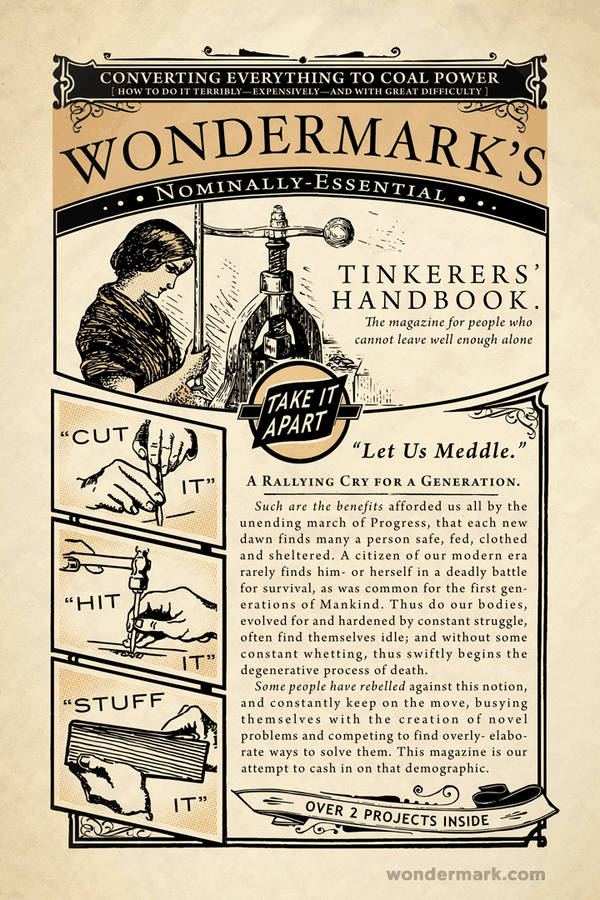 The Wondermark webcomic is celebrating its ninth anniversary with a multi-part sendup of maker culture called "The Tinkerer's Handbook (The Magazine For People Who Cannot Leave Well Enough Alone)." |
| WWII airplane factory camouflaged as residential neighborhood Posted: 26 Apr 2011 06:41 PM PDT   "During World War II, the Army Corps of Engineers needed to hide the Lockheed Burbank Aircraft Plant to protect it from a possible Japanese air attack. They covered it with camouflage netting to make it look like a rural subdivision from the air." (barnstormers.com, via the BB Submitterator, thanks Jellodyne) |
| Time-lapse macro video: ferrous particles in liquid suspension, drawn to magnet Posted: 26 Apr 2011 06:43 PM PDT Kim Pimmel shares the video above, and explains: Ferrous printer toner particles floating on the surface of water are attracted by a magnet and align to the invisible magnetic field around them. The patterns and motions that result are strangely ordered and organized. Time-lapse sequences were created from individual photos shot with a Nikon D90, DIY macro lens and DIY intervalometer. |
| Posted: 26 Apr 2011 06:26 PM PDT The cobbled-together mediocrity of Chuck Norris' columns is a given, but Wonkette finally sat down and figured out just how cut-and-pasty it is. Very! The best part is that the plagiarism is so obvious that no-one is really even angry and Creators Syndicate hasn't yet found the energy to give a damn. |
| Gamifying personal finances: what works and what doesn't Posted: 26 Apr 2011 06:04 PM PDT [Video Link] I wrote a piece for Credit.com about adding gamelike elements to personal finances. I tried out payoff.com (didn't like it) and smartypig.com (love it). I entered this information into the form, and payoff.com presented me with four different opportunities to earn badges: linking my Facebook account to payoff.com, for signing into payoff.com every day for a week, for completing my payoff.com profile, or inviting friends and family to payoff.com. To me, these badges weren't much of an incentive. They seemed to serve payoff.com's needs more than my own. (I also received four badges via email: the Smart Saver Badge, the Smart Spender Badge, the Goal Setter Badge, and the VIP badge. This felt like badge inflation an did I really deserve so many badges just for setting up a goal? Badges are only worth something if you have to work to earn them.)Having Fun with Your Finances |
| US abandons criminal invst of NSA wiretapping whistleblower Posted: 26 Apr 2011 06:05 PM PDT Kevin Poulsen at Wired.com reports that the US "has dropped criminal investigation of the whistleblower who exposed the Bush administration's warrantless wiretapping program to the New York Times in 2004, and will evidently not be filing criminal charges for the historic leak." |
| High radiation levels at Ohio nuclear plant prompt NRC "special inspection" Posted: 26 Apr 2011 05:43 PM PDT The U.S. Nuclear Regulatory Commission today issued a statement confirming that workers at the Perry Nuclear Power Plant in northeast Ohio evacuated the plant on April 22 after radiation levels rose as the plant was shutting down for refueling. The plant is safe, according to the NRC, and workers are not believed to have been exposed to radiation levels beyond federally-recommended limits. A special inspection team from the NRC began work on Monday, and will review the circumstances surrounding the incident. From AP: The commission says radiation levels rose when workers were removing a monitor that measures nuclear reactions during start-up and shutdown. The nuclear reactor, owned by Akron-based FirstEnergy Corp., is about 35 miles northeast of Cleveland. A FirstEnergy spokesman did not immediately return a request for comment after business hours Tuesday. AP, WKYC Ohio, MSNBC, and here is a PDF of the NRC's statement on the "special inspection." The resulting report will be available online within 45 days of the inspection's completion. |
| Ric Elias: 3 things I learned while my plane crashed Posted: 26 Apr 2011 05:02 PM PDT "Ric Elias had a front-row seat on Flight 1549 as it crash-landed in the Hudson River in January 2009. What went through his mind as the plane went down?" |
| Why should you care about iOS location tracking? Posted: 26 Apr 2011 05:09 PM PDT  Over at Wired Gadget Lab, Brian Chen and Mike Isaac have a thoughtful, non-hysterical piece up about the Apple iOS location data gathering issue. You should care about Apple's collection of geodata on iPhones, iPads and iPod Touch devices, because the method is flawed. Image: "An unencrypted file stored in iPhones and iPads records a user's location data. An open source application was used to plot the location data from an iPhone belonging to a Wired.com reporter."
|
| Like Apple and Google, Microsoft collects location data on Windows Phone 7 users Posted: 26 Apr 2011 04:56 PM PDT Over at CNET, Declan McCullagh reports that Microsoft also collects records of the whereabouts of people who use its mobile operating system, Windows Phone 7. In recent weeks, we've blogged here at Boing Boing about controversy surrounding revelations that Apple collects physical location data for iPhone and iPad users, and that Google does too, for Android users. Snip from CNET piece: Windows Phone 7, supported by manufacturers including Dell, HTC, LG, Nokia, and Samsung, transmits to Microsoft a miniature data dump including a unique device ID, details about nearby Wi-Fi networks, and the phone's GPS-derived exact latitude and longitude. Microsoft collects locations of Windows phone users (CNET News)
|
| Trailer for upcoming movie about "Black Prince" Uday Hussein Posted: 26 Apr 2011 04:47 PM PDT [Video Link] Too bad Uday Hussein isn't around to watch The Devil's Double (July 29). He'd surely have enjoyed it. Based on a gripping, unbelievable true story of money, power and opulent decadence, Lionsgate's THE DEVIL'S DOUBLE takes a white-knuckle ride deep into the lawless playground of excess and violence known as Bagdad, 1987. Summoned from the frontline to Saddam Hussein's palace, Iraqi army lieutenant Latif Yahia (Dominic Cooper) is thrust into the highest echelons of the "royal family" when he's ordered to become the 'fiday' - or body double - to Saddam's son, the notorious "Black Prince" Uday Hussein (also Dominic Cooper), a reckless, sadistic party-boy with a rabid hunger for sex and brutality. With his and his family's lives at stake, Latif must surrender his former self forever as he learns to walk, talk and act like Uday. But nothing could have prepared him for the horror of the Black Prince's psychotic, drug-addled life of fast cars, easy women and impulsive violence. With one wrong move costing him his life, Latif forges an intimate bond with Sarrab (Ludivine Sangier), Uday's seductive mistress who's haunted by her own secrets. But as war looms with Kuwait and Uday's depraved gangster regime threatens to destroy them all, Latif realizes that escape from the devil's den will only come at the highest possible cost.The Devil's Double |
| Posted: 26 Apr 2011 04:43 PM PDT US military analysts assessing the threat levels related to some 800 men held at Guantánamo used testimony from just 8 detainees, whose accounts now "appear to be questionable." Why is their testimony unreliable? It was obtained under "harsh interrogation" methods which most of us would describe as torture. (McClatchy, via ProPublica) |
| "Marwencol" airs tonight on PBS Independent Lens Posted: 26 Apr 2011 04:36 PM PDT The amazing documentary film Marwencol, which I blogged about earlier this year, is airing tonight on PBS Independent Lens. Check here for local listings. It's a fantastic film. |
| Elon Musk of SpaceX: We can put a human on Mars in 10 years Posted: 26 Apr 2011 04:23 PM PDT The Wall Street Journal's Alan Murray interviews Elon Musk of Space Exploration Technologies Corp., better known as SpaceX. Musk says his company plans to send a manned craft to space in three years, but that "we're going all the way to Mars. Best case, 10 years, worst case, 15 to 20 years." |
| Friendster to erase user profiles Posted: 26 Apr 2011 04:07 PM PDT |
| Posted: 26 Apr 2011 04:08 PM PDT [Video Link] Poly Styrene, lead singer for the amazing X-Ray Spex, died of cancer today. She was 53. |
| Gewgaw cools down coffee to 140 F, then keeps it there for hours Posted: 26 Apr 2011 04:43 PM PDT So far 3,383 people have pledged $205,650 on Kickstarter towards the Coffee Joulies project. I didn't know that coffee cooling down too quickly was such a big problem. Coffee Joulies work with your coffee to achieve two goals. First, they absorb extra thermal energy in your coffee when it's served too hot, cooling it down to a drinkable temperature three times faster than normal. Next, they release that stored energy back into your coffee keeping it in the right temperature range twice as long.Coffee Joulies - your coffee, just right Previously on Boing Boing: Coffee Joulies |
| Go the Fuck to Sleep: a storybook for exhausted parents Posted: 26 Apr 2011 03:53 PM PDT  This is going to be my default gift for my friends who have kids. Go the Fuck To Sleep is a bedtime book for parents who live in the real world, where a few snoozing kitties and cutesy rhymes don't always send a toddler sailing off to dreamland. Honest, profane, and affectionate, Adam Mansbach's verses and Ricardo Cortés' illustrations perfectly capture the familiar--and unspoken--tribulations of putting your little angel down for the night, and open up a conversation about parenting in the process. Beautiful, subversive, and pants-wettingly funny, Go the Fuck to Sleep is a perfect gift for parents new, old, or expectant. Here is a sample verse:Go the Fuck to Sleep |
| Sony: PSN intruder may have taken credit card info Posted: 26 Apr 2011 03:52 PM PDT 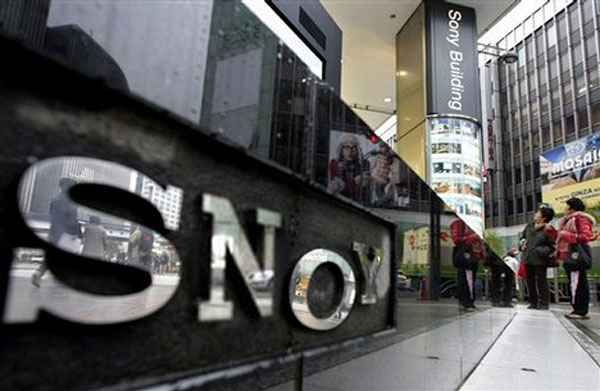 Sony reports that an intruder may have gleaned users' personal information, including credit card details, from its PlayStation Network. The PSN's been offline for nearly a week now while the company investigates. Though the first order of business for PSN customers is to call their bank and keep a close eye on the ol' credit card balance, the BBC warns people to be aware of more insidious schemes that exploit mundane personal details, such as telephone scams and identity theft. [BBC] Sony reports that an intruder may have gleaned users' personal information, including credit card details, from its PlayStation Network. The PSN's been offline for nearly a week now while the company investigates. Though the first order of business for PSN customers is to call their bank and keep a close eye on the ol' credit card balance, the BBC warns people to be aware of more insidious schemes that exploit mundane personal details, such as telephone scams and identity theft. [BBC] |
| Posted: 26 Apr 2011 03:32 PM PDT In the current Literary Review, University of Liverpool professor Philip Davis, author of Shakespeare Thinking, describes his ongoing collaborations with neuroscientists to study The Bard's syntax and one of his favorite linguistic tricks: the functional shift. One kind of functional shift is the "verbing" of a noun -- for example, "parenting our children." Shakespeare frequently verbed nouns to great effect and Davis wanted to find out if the literary device could be understood with neuroscience. So he and his colleagues are using EEG and other methods to measure the brain's response to Shakespearian functional shifts. As Davis says, it's early in the study but "our findings begin to show how Shakespeare created dramatic effects by implicitly taking advantage of the relative independence - at the neural level - of semantics and syntax in sentence comprehension." From the Literary Review: "The Shakespeared Brain" (Thanks, Mumbles Mumbach!) |
| Copyright laws prevents release of historic jazz recordings Posted: 26 Apr 2011 03:38 PM PDT  In the 1930s an audio engineer named William Savory (above) made a lot of high-quality recordings of live jazz performances of Louis Armstrong, Billie Holiday, Benny Goodman, Count Basie, Teddy Wilson, Lester Young, Bunny Berigan, Coleman Hawkins and others. The National Jazz Museum in Harlem acquired the collection after Savory died. Steven Seidenberg of the ABA Journal reports that "jazz experts were stunned," by the recordings. "The extent and quality of the Savory collection was beyond anything they had imagined." Unfortunately, we will probably never get to hear the recordings, thanks to current copyright laws. Among the treasures: Coleman Hawkins, the first great tenor saxophonist in jazz, playing multiple ad-lib choruses on the classic "Body and Soul." Billie Holiday, accompanied only by piano, singing a moving rubato version of "Strange Fruit," a chilling musical condemnation of lynching. The Count Basie Orchestra performing at the world's first outdoor jazz festival, the 1938 Carnival of Swing on Randall's Island in New York City. Basie's tenor sax stars, Lester Young and Herschel Evans, sharing solos on "Texas Shuffle." Benny Goodman and Teddy Wilson--on harpsichord instead of his usual piano--performing "Lady Be Good!" And the list goes on.A Trove of Historic Jazz Recordings has Found a Home in Harlem, But You Can't Hear Them |
| Transgender woman beaten in McDonald's speaks out Posted: 26 Apr 2011 03:40 PM PDT Remember that viral video that made the rounds last week, of a woman being kicked, beaten and spat upon, on the floor of a McDonald's in Baltimore—then going into an epileptic seizure, as the attack continued for what seems like an eternity? Chrissy Lee Polis, 22, was the victim. She is epileptic. She is also transgender, and that was apparently the motivation for the attack. She spoke to the Baltimore Sun today. "They said, 'That's a dude, that's a dude and she's in the female bathroom. They spit in my face."Victim of McDonald's beating speaks out (baltimoresun.com) Related: there have been demonstrations in support of Polis, and in support of a transgender non-discrimination bill that was killed by the Maryland Senate just a week prior to the attack. (toweleroad.com) |
| Five awesome iOS apps for space and astronomy fans Posted: 26 Apr 2011 03:14 PM PDT  Intel invited me to contribute a post to their "My Life Scoop" site, and I decided to do a roundup of astronomy-related apps for the iPhone, iPod Touch, and iPad. I really and truly do dig these apps: I use them to check on solar storms, to learn about exoplanets, to figure out when I can view the Space Station flying by overhead, and to help me and my family navigate our way through the night sky on star-watching nights. I first learned to love the stars through my grandfather, an amateur astronomer born in 1903 who fashioned telescope lenses from glass and aluminum scavenged in Pittsburgh factory trash-heaps. My "pop-pop" imparted his knowledge of astronomy, and the tools of astronomy, without the aid of any digital devices, but I like to imagine that if he were around today, he'd really enjoy the wide variety of mobile applications for amateur astronomers, and star-curious kids like I was back then.(Special thanks to Maggie Koerth-Baker and Miles O'Brien for turning me on to some of these apps!) |
| Adobe Digital Editions "astronomically expensive" ... but who is the customer? Posted: 26 Apr 2011 02:48 PM PDT Elliot Jay Stocks discusses Adobe's pricing model for its forthcoming Digital Editions package. The price for the add-on, which allows publishers to export iPad magazines from Adobe Creative Suite, is astronomical. £7003 per year as a minimum spend -- irrespective of how many copies you sell, or how regularly you publish -- and that's on top of ... the suite [which] costs £1810. That's what you'll be paying to Adobe. On top of that, there's the 30% per-download charge publishers are required to pay to AppleHe notes that this effectively prices small, website-size publishers out of the market and criticizes it on that basis. His is an excellent analysis, but assumes that Adobe was interested in that kind of market to begin with. But is it? You may think this question odd, and you'd be right! Given the singular functionality of the software and its accompanying platform, and how it slots in alongside relatively inexpensive apps like InDesign, it seems absurd to ask for $12k a year (and it goes up with circulation!) to publish the output. There's clearly a potential market for small publishers wanting a piece of the native app-mag action, so it seems crazy not to serve it. I suspect that we, makers and eaters of the new media, understand this only because we tend to approach publishing technology with a consumer mindset. It's always been that convenient for us: low overheads and few obligations. We can rig it all together ourselves. We can change our minds, switching technological ecosystems whenever it suits us. And we often revel in the culture of innovation that embraces this attitude. Traditional publishers don't. They have a simple question--how do we "Command-P print to iPad"?--and this is the answer, from a vendor they may already be wedded to. The big question on many minds will not be "How can we afford this?" It will be "Is it cheaper than the one for Quark?" or, God save their sorry asses, "How do we get Baseview to hook up to this?" So I don't think Adobe's pitching here to small websites or creative professionals, but for big print publishers who remain profoundly disinterested in how cheaply they could do things by stepping out of the discomfort zone. Newspapers, even wee ones, don't believe in everyday, inexpensive DIY solutions and the risk that comes with them; they pursue service contracts, foolproof support, and an unyielding faith in the value of long-term technological commitments. They're used to them: a big offset press costs millions of dollars to replace, a decision one may live and work with for an entire career. I can offer an illustration from experience. When I was a cub reporter, our newsroom database software was a proprietary monster running on Mac OS Classic. The database software alone cost tens of thousands of dollars. This state of affairs is completely normal in the newspaper business. When Apple released OSX, it took the vendor years to upgrade this database, leaving us to run Classic servers well past their sell-by date. And when the upgrade finally came to market, the price tag was another giant sum. Looking under the hood, I saw that the 'upgraded' version of their database was in fact MySQL. Just like the MySQL that comes free with OSX! In essence, the huge cost was for whatever scripts they'd use to transfer over the data, and the associated support. To me, the representation of MySQL as its own product was kind of shady, but to a newspaper, that's how they like to do business. They're paying for the turnkey solution. Their religion was built on the need for completely dependable machines that cost unbelievable amounts of money. It's a part of why they've become poster children for institutional resistance to necessary change, even in the face of death. With its Digital Editions Suite pricing scheme, Adobe fails the sniff test with consumers and smart modern publishers, but it won't care. The New York Times recently spent hundreds of millions of dollars on a fancy new skyscraper. Smaller newspapers still spend hundreds of thousands of dollars a year paying for presses they bought in the 20th century. These are Adobe's ideal customers. |
| AT&T and T-Mobile USA: the case for a merger Posted: 26 Apr 2011 01:46 PM PDT 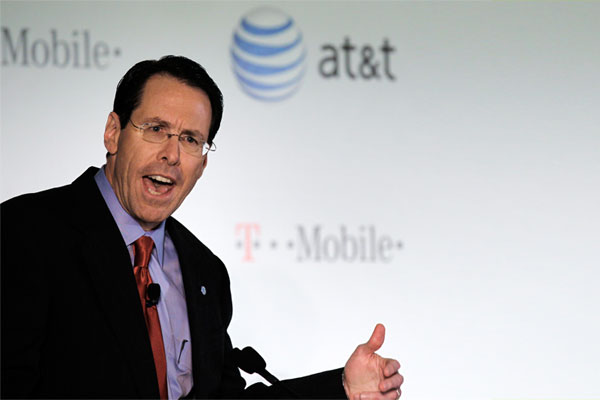 AT&T Inc. CEO Randall Stephenson announces his company's proposal to buy T-Mobile from Deutsche Telekom in New York. REUTERS/Brendan McDermid AT&T Inc. CEO Randall Stephenson announces his company's proposal to buy T-Mobile from Deutsche Telekom in New York. REUTERS/Brendan McDermid And man, does the wireless industry ever need some big-time blowing up. AT&T points to the explosion of Android and the iPhone as evidence that the wireless industry is competitive, but I see that only as evidence that Google and Apple are big enough to be competitive regardless of the knee-deep carrier bullshit they're forced to wade through en route to the consumer. It's a market failure that I can't buy an unlocked iPhone or Android device and easily run it on the carrier of my choice, and it's an even bigger failure that I can't use a phone number on multiple devices as easily as an email address or Twitter account or Rdio subscription. It's ridiculous that I can bring my own phone to AT&T's network but still have to pay same rates as someone on a two-year contract designed to subsidize a device. I can keep going -- and I'm sure you can too. It's insane. Mobile is exploding in spite of the carriers, not because of them. Let's fix it. So, what am I proposing? Two very simple rules: • First, that the FCC impose the same open-access requirement on the newly merged AT&T as were imposed on Verizon's 700MHz spectrum purchase. That means AT&T would have to allow any device and any application to use its network, just as Verizon has to with its LTE network. You might recognize this riff -- it's a little something called net neutrality. • Second, that the FCC require AT&T's 700MHz LTE devices to be interoperable with Verizon's 700MHz LTE devices. This would allow a consumer to take their phone and switch carriers just by swapping a SIM card. There are technological hurdles to making this happen, but it's key -- allowing consumers to easily jump ship will force the carriers to actually compete for their dollars. Now, there are a million other conditions that the FCC and DOJ might impose on the merger, all mostly to do with divesting spectrum resources in particular areas. But I think these two conditions would finally -- finally! -- begin to separate access from devices, a conflation that's done nothing but hold the entire tech industry back. I'd love to see what Motorola or Sony or Samsung could do with the opportunity to sell phones directly to the consumer, and I'm dying to see how AT&T and Verizon would differentiate their services once they can't rely on device exclusives. Faster, more reliable service at lower prices seems like a hell of a good start. What's more, I'd love to see the FCC really hold AT&T's feet to the fire when it comes to rural broadband. AT&T is promising that the merger will allow it to cover 97 percent of Americans with LTE, and FCC should set an aggressive timeline for that goal. Not only will that push other competitors to beat AT&T to the punch in underserved areas, but it will offer a real solution to the millions of Americans who still have to rely on dialup to get online. That's a crying shame -- we're rapidly getting to the point where broadband access is a necessary utility on the order of water and power, and we shouldn't let huge swaths of the country lag behind. We've seen what device manufacturers and software developers are capable of when faced with stiff competition, but we've never made our wireless carriers actually go head-to-head. Now's the time -- I just hope the FCC sees this opportunity to implement real open access rules and accelerate rural broadband deployment as clearly as I do. P.S. -- I mentioned it above, but you should definitely read Chris Ziegler's very convincing piece arguing against the AT&T / T-Mobile merger as well. There's a lot at stake here, and understanding both sides of the debate is critically important for anyone who cares about technology. |
| Happy birthday, John James Audubon! Posted: 26 Apr 2011 12:04 PM PDT  Happy birthday, John James Audubon (1785-1851)! In celebration of the great French-born wildlife artist, naturalist, and ornithologist, Smithsonian presents a fascinating excerpt from Richard Rhodes' 2004 biography John James Audubon: The Making of an American. From Smithsonian: "John James Audubon: America's Rare Bird" |
| Timeline of Science Fiction Ideas, Technology and Inventions Posted: 26 Apr 2011 11:42 AM PDT 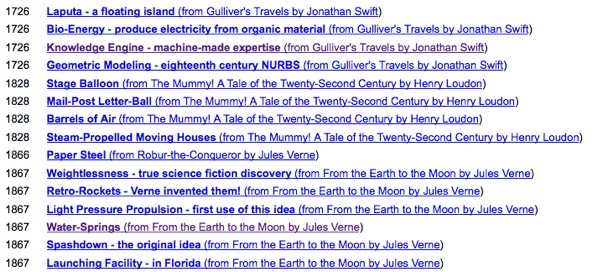 Technovelgy.com has a wonderful rabbit hole of a "Timeline of Science Fiction Ideas, Technology and Inventions," sorted by publication date, rife with excerpts from the fiction, and linked to info about similar tech and inventors in the real world. "Timeline of Science Fiction Ideas, Technology and Inventions" (via Imaginary Foundation) Technovelgy.com has a wonderful rabbit hole of a "Timeline of Science Fiction Ideas, Technology and Inventions," sorted by publication date, rife with excerpts from the fiction, and linked to info about similar tech and inventors in the real world. "Timeline of Science Fiction Ideas, Technology and Inventions" (via Imaginary Foundation) |
| Authors of the Impossible: interview with Jeff Kripal Posted: 26 Apr 2011 11:15 AM PDT Jeff Kripal, who wrote the fantastic BB special feature "Psi-Fi: Popular Culture and the Paranormal," was recently interviewed by The Immanent Frame. Jeff is the chair of Rice University's Department of Religious Studies and author of an incredible book titled Authors of the Paranormal, that inspires me every time I reopen it, and the classic Esalen: America and the Religion of No Religion. His next book, Mutants and Mystics, about the intersections of science fiction, superhero comics, and the paranormal, is due out in October. From The Immanent Frame: "Reading the paranormal writing us: an interview with Jeffrey Kripal" (Thanks, Jody Radzik!) |
| You are subscribed to email updates from Boing Boing To stop receiving these emails, you may unsubscribe now. | Email delivery powered by Google |
| Google Inc., 20 West Kinzie, Chicago IL USA 60610 | |

 (Functional shift) happens when one part of speech is suddenly transformed into another with a different function but hardly any change of form. It sounds dull but in performance is almost electrically exciting in its sudden simple reach for a word. For example: an adjective is made a verb when in The Winter's Tale heavy thoughts are said to 'thick my blood'. A pronoun is made into a noun when Olivia in Twelfth Night is called 'the cruellest she alive'. Prospero turns adverb to noun when he speaks so wonderfully of 'the dark backward' of past time; Edgar turns noun to verb when he makes the link with Lear: 'He childed as I fathered.' As Abbott says, in Elizabethan English 'You can "happy" your friend, "malice" or "foot" your enemy, or "fall" axe on his head.' Richard II is not merely deposed (that's Latinate paraphrase): he is unkinged.
(Functional shift) happens when one part of speech is suddenly transformed into another with a different function but hardly any change of form. It sounds dull but in performance is almost electrically exciting in its sudden simple reach for a word. For example: an adjective is made a verb when in The Winter's Tale heavy thoughts are said to 'thick my blood'. A pronoun is made into a noun when Olivia in Twelfth Night is called 'the cruellest she alive'. Prospero turns adverb to noun when he speaks so wonderfully of 'the dark backward' of past time; Edgar turns noun to verb when he makes the link with Lear: 'He childed as I fathered.' As Abbott says, in Elizabethan English 'You can "happy" your friend, "malice" or "foot" your enemy, or "fall" axe on his head.' Richard II is not merely deposed (that's Latinate paraphrase): he is unkinged.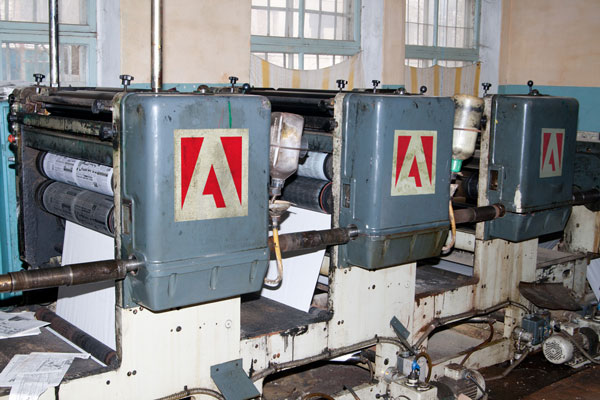
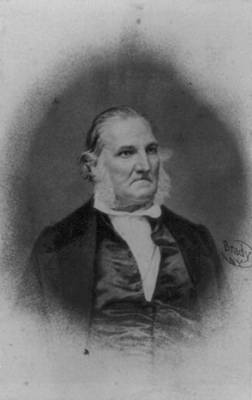 Though drawing birds had been something of an obsession, it was only a hobby until Audubon's mill and general stores went under in the Panic of 1819, a failure his critics and many of his biographers have ascribed to a lack of ability or irresponsible distraction by his art. But nearly every business in the trans-Appalachian West failed that year, because the Western state banks and the businesses they serviced were built on paper...
Though drawing birds had been something of an obsession, it was only a hobby until Audubon's mill and general stores went under in the Panic of 1819, a failure his critics and many of his biographers have ascribed to a lack of ability or irresponsible distraction by his art. But nearly every business in the trans-Appalachian West failed that year, because the Western state banks and the businesses they serviced were built on paper...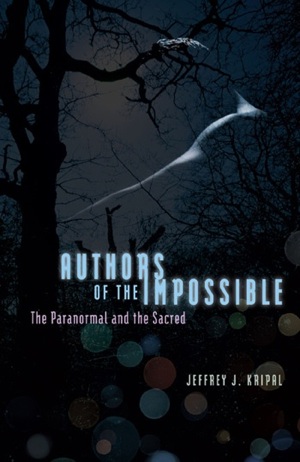 Most simply, "Authors of the Impossible" is an attempt to tell the story of how the technical categories of the psychical and the paranormal migrated from the academy, where they were carefully created and widely celebrated in the late nineteenth and early twentieth centuries, into popular culture and the media, where they now sit in intellectual disregard and confusion. The book is also an attempt to make sense of paranormal experiences from the perspective of the humanities. I read the paranormal as a semiotic event that plays out on both the mental/subjective and material/physical planes as a bridging sign or mediating story between two orders of experience: one conscious and constructed, the other not. Such a project, of course, violates our Cartesian epistemologies involving an interior, solipsistic, illusory subject looking out onto a real but dead, indifferent, and inert objective world ruled entirely by math and mechanism. It is this same useful Cartesian mistake that renders such events "impossible," even though they happen all the time...
Most simply, "Authors of the Impossible" is an attempt to tell the story of how the technical categories of the psychical and the paranormal migrated from the academy, where they were carefully created and widely celebrated in the late nineteenth and early twentieth centuries, into popular culture and the media, where they now sit in intellectual disregard and confusion. The book is also an attempt to make sense of paranormal experiences from the perspective of the humanities. I read the paranormal as a semiotic event that plays out on both the mental/subjective and material/physical planes as a bridging sign or mediating story between two orders of experience: one conscious and constructed, the other not. Such a project, of course, violates our Cartesian epistemologies involving an interior, solipsistic, illusory subject looking out onto a real but dead, indifferent, and inert objective world ruled entirely by math and mechanism. It is this same useful Cartesian mistake that renders such events "impossible," even though they happen all the time...
No comments:
Post a Comment